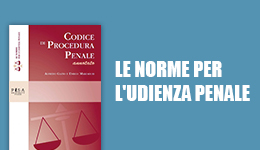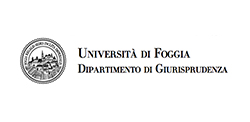Considerazioni sul discrimen tra la ragion fattasi e l’estorsione. L’equilibrio raggiunto dalle Sezioni unite
Archivio Penale
© dell'autore 2020
Ricevuto: 10 December 2020
| Accettato: 21 December 2020
| Pubblicato: 28 December 2020
L’intero articolo è disponibile
Riassunto
Il delitto di esercizio arbitrario delle proprie ragioni e quello di estorsione si distinguono non già per la materialità del fatto, che può essere la medesima, ma per l’elemento psicologico/intenzionale, a prescindere dal livello di intensità e gravità della condotta violenta e della minaccia, che può costituire un mero indice sintomatico. Il processo d’individuazione dell’elemento soggettivo deve avvenire secondo le consuete regole probatorie. Nella specie, la Suprema Corte ritiene che il concorso del terzo nel reato di esercizio arbitrario delle proprie ragioni con violenza o minaccia alle persone è configurabile esclusivamente nei casi in cui l’agente terzo si limiti ad offrire un contributo alla pretesa del creditore, senza perseguire una finalità diversa ed ultronea, quale il conseguimento di un interesse personale. Nel caso in cui il terzo, in concorso con il creditore, abbia esercitato il preteso diritto per conto del suo effettivo titolare, ed abbia agito al fine di ottenere un interesse proprio indebito, risponderanno in concorso per il più grave delitto di estorsione.
Considerations on the distinction between arbitrary exercise of a right of his own and extortion. The balance set out by Italian Supreme Court joint divisions.
The Italian Supreme Court, joint divisions, in the recent judgdement released on October 23rd, 2020, provided that the distinction between the crime of extortion and that one of arbitrary exercise of a right of his own, relies not on the material conduct, which can be the same, but on the psychological/intentional element, regardless of the level of intensity and seriousness of the violent behaviour and the threat, which may be a mere symptomatic index. The process of identifying the subjective element must follow the usual rules of evidence. In this case, the Supreme Court also finds that the third party's participation in the crime of arbitrary exercise of his reasons with violence or threat to persons can only be committed in cases where the third party agent merely contributes to the creditor's claim, without pursuing a different and additional purpose, such as the gain of a personal interest. In the event that the third party, in competition with the creditor, has exercised the alleged right on behalf of its actual owner, and has acted in order to obtain an unlawful interest of his own, they will be liable in cooperation competition for the most severe crime of extortion.
Percorso di valutazione
Peer reviewed. Certificazione della qualità











